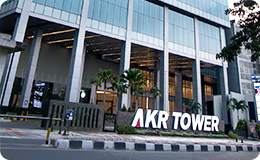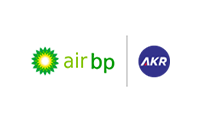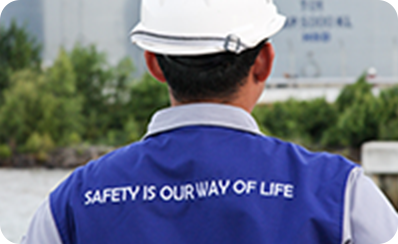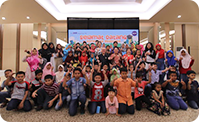AKR believes in the importance of implementing good governance in every operational activity of the Company. To realize this, AKR refers to the GCG principles contained in Law Number 40 of 2007 concerning Limited Liability Companies. In practice, AKR has a governance structure consisting of the main organs, namely the General Meeting of Shareholders (GMS), the Board of Commissioners and the Board of Directors. To assist in carrying out their duties, the Board of Commissioners and the Board of Directors also have supporting organs, where each organ has an important role in implementing GCG. Each organ has the responsibility to carry out its functions and duties for the benefit of the Company and stakeholders. Through the application of the principles of transparency, accountability, responsibility, independence and fairness, we believe we will be able to strengthen and improve the Company’s performance towards sustainability.
For more detailed information regarding AKR’s governance structure, along with the Company’s organs, can be found in Section of Corporate Governance: https://www.akr.co.id/gcg/gcg-overview
In 2022, as a concrete step of the Company’s commitment to achieving sustainability, AKR established an ESG Committee. This committee is responsible for determining the Company’s ESG strategies, providing recommendations, coordinating, providing reports, and monitoring ESG initiatives carried out by the Company. In carrying out its function, AKR’s ESG Committee is led by and reports directly to the President Director of the Company supervised by an Independent Commissioner. ESG Committee Charter can be accessed on GCG section: https://www.akr.co.id/gcg/charter-policies/esg-committee-charter
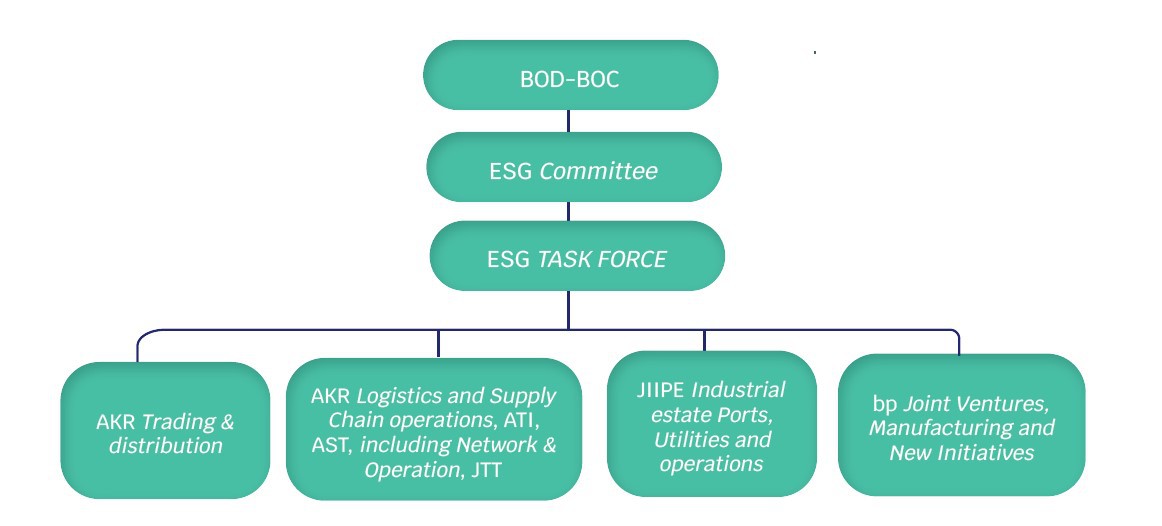
ESG Committee on Sustainability Management at AKR
AKR’s ESG Committee has a role in implementing sustainability topics including the economic, environmental, and social topics. The ESG Committee is tasked with providing guidance and supervision on sustainability that refers to AKR’s sustainability goals, values, mission, policies, strategies and targets.
All sustainability goals, values, vision, mission, policies, strategies and targets that have been set will then be implemented by the relevant divisions. Each director in the relevant division will lead and supervise the application of the Company’s sustainability policies. Then, for assessing the sustainability performance, the ESG Committee will routinely hold meetings with those in charge of each division who will submit their performance reports.
AKR ESG Committee Delegation of Authority
Through the delegates assigned to carry out the sustainability initiatives, AKR also delegates tasks that have sustainability values to each of the Company’s business units and supervises them so that they run optimally. The ESG Committee is directly in charge of the ESG Task Force that consists of Senior Employees in each division.
When carrying out its duties the AKR ESG Committee has the following authorities;
- Access to data, documents and other information about company resources needed for the implementation of the Sustainable Action Plan
- Communicate directly with employees including the Board of Directors and the ESG task force regarding their duties and responsibilities.
- With the permission of the Board of Commissioners, involve independent parties outside the ESG Committee members, if needed to assist in carrying out their duties.
- Carry out other authorities granted by the Board of Commissioners
The AKR ESG Committee’s duties and responsibilities in more detail include:
- Reviewing business processes and identifying and managing the impact of AKR’s operations on the environment, social and governance.
- Observing and scrutinizing regulations and developments in Indonesian and international sustainability standards, as well as determining relevant material for AKR, and providing recommendations to the highest level of the ESG task force to formulate appropriate sustainability strategies, policies, targets and guidelines for AKR.
- Reviewing AKR’s strategies, policies, targets and sustainability guidelines on a regular basis.
- Reviewing AKR’s sustainability performance in all aspects of AKR’s Sustainability Commitment on a regular basis.
- Reviewing the effectiveness of communication in disseminating AKR’s sustainability policy to AKR’s internal and external parties.
- Participating in the development of public policies related to the impact of climate change and the environment.

